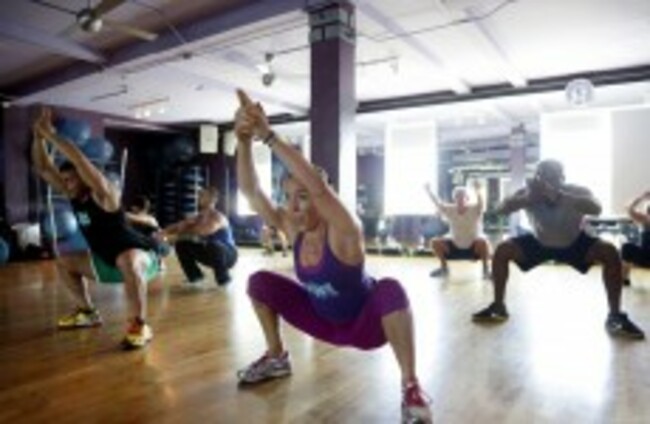NOW THAT THE summer has arrived and there is a stretch in the evenings, it’s not unusual to see a conveyor belt of walkers or a profusion of joggers pounding the pavements.
Although Ireland’s alarming obesity epidemic shows no sign of subsiding, there is certainly a noticeable change in the nation’s mindset and attitude towards exercise.
With the focus firmly on healthy living, there has been unprecedented growth and development in the modern fitness industry with an increase in the number of gym memberships bought and different services – including boot camps – coming onto the market.
Indeed, there is now more demand for enlightened fitness professionals and that’s reflected in the heightened appeal of entering the industry as a chosen career.
There are now specialist colleges and courses sprouting all over the country, one of which is The Fitness Academy based in Citywest.
Set-up by former League of Ireland player Patrick O’Hanlon, the private college has experienced huge success since its formation in 2008 and offers students the perfect platform to kick-start their career in an increasingly competitive trade.
“There’s a lot of people going down this avenue,” O’Hanlon tells The42. “We get students from all walks of life all coming in with different goals.
“The majority will be school leavers but there are some that come to us for a career change too.
“There’s no quick route into this industry unfortunately as you need the qualifications under your belt but we provide a number of different opportunities for individual needs.”
Gym memberships were affected badly by the economic downturn with one in seven people deciding to cancel their subscription during the recession but the industry has come out the other side.
The downward trend in discretionary income spending quickly reversed with business now ballooning as interest levels among gym-goers and fitness enthusiasts spikes.
“My football coach told me that this was an industry that was going to excel. That was in 1998 and I knew this was for me,” O’Hanlon, who also has an Uefa ‘B’ Coaching badge, continued.
“I had a passion for it but back then there weren’t many options for you. There were one or two courses and that was it. I decided to set-up my own specialist college, actually during the recession, after an opportunity arose.
“It’s just exploded and surpassed all my expectations.”
As an internationally recognised college, The Fitness Academy offers a wide-range of part-time and full-time courses and its growth has reflected the increasing demand for personal trainers as we search for the inspiration and motivation to change our lifestyle for the better.
By his own admission, O’Hanlon wasn’t particularly academic in school but he dispels the notion that such hands-on, practical courses are suited more towards fitness orientated individuals.
“Everyone thinks you need to have a passion for sport but you don’t. Our aim is to develop the student as an instructor and we provide them with all the material to do so.
“It is very practical but there are certain amount of lectures just like any other course. We’re trying to educate people and make them more aware because if we have more individuals who are knowledgeable about health and fitness then that’s half the battle.”
Certainly, one of O’Hanlon’s aims is not just to fill the industry with educated individuals but help the country reverse its health issues.
On the face of it, a career as a personal trainer or a gym assistant can be a financially low-rewarding profession with long hours and because of the competition, a difficult line of work to make a living out of.
“It can be cut-throat,” O’Hanlon adds. “But there is so many opportunities now with programmes like Operation Transformation changing the attitude of the nation and emphasising the importance of eating the right food and getting active.
“As much as people think they know what they’re doing, very few do and that’s why the industry has thrived in the last few years. We are trying to target schools to get students in through the CAO system and it’s been very successful.”
For many, the stereotypical personal trainer is a mean, even intimidating, figure who is there to inflict pain on you but O’Hanlon has noticed a change in the demographic coming through his doors.
“When people are trying to lose weight, they love to work with someone who they can relate to, who has experienced the same situation,” he explains.
“So we have loads of people who have never played sport coming to us hoping to change themselves and help change others – some even do it on top of a day job.
“Ireland is certainly on the right track in terms of combating obesity and becoming a healthier population but I’d like to think our graduates will help the next generation become fitter, healthier and more active.”





